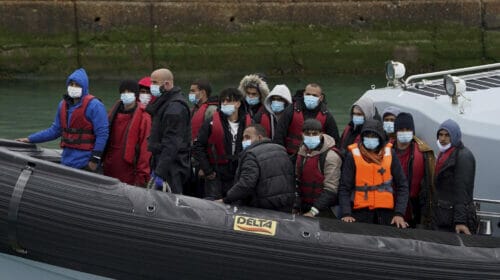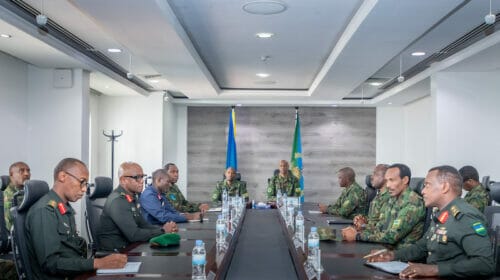“It is not safe in the new Rwanda to share what you really think”

Author Dr. Susan Thomson
By: Jennifer Fierberg
Powerlessness can be defined as the inability to make changes in one’s own life or having the lack of ability to effect change. This lack of power can be a product of social hierarchy, racism, cultural contexts and the influence of political leaders. In the case of Rural Rwanda, political oppression has led to powerlessness among the most poor and vulnerable in the community. Further, powerlessness is, “Ordinary people who have nothing left to lose and have always spoken truth to power.” Dr. Susan Thomson, Professor at Colgate University, spent time on the ground in Rwanda in 2006 with “ordinary Rwandans” who appear to have no voice or power in the community on a macro level in order to see how these individuals obtain power in their own lives. Her research goals were to identify and analyze everyday acts of resistance of the ordinary peasants in Rwanda.
Dr. Thomson defined “Ordinary Rwandans” as those where are non-elite and largely peasant citizens who are subsistence farmers and/or day-to-day laborers. Further, she set out to learn if the policy of national unity and reconciliation represented and oppressive form of power in the lives of the participants. Her participants represent 66% of Rwanda’s peasantry and 82% of Rwandans entire population of just over 11 million people live in rural areas and are considered by the government to be peasants. At the time of her research, almost 68% of the entire population earned less than $1 per day. Those who have been able to obtain higher education and/or are politically connected have a higher perception on the remarkable post genocide recover than the “ordinary Rwandan” does. Under President Paul Kagame’s leadership, Dr. Thomson identifies that he has become “a leader on the African continent in terms of service deliver in education and healthcare.” Although, she also asks a very important question, “to whose benefit are Rwandans economic gains benefitting?” This question has yet to be answered on an empirical level.
The title of the book, Whispering Truth to Power, is a powerful look at how those who lack the ability to be politically involved due to social strata find ways to make their feelings known in subtle ways that will not land them in jail or as further social outcasts. Some examples cited in the text of resistance include, withdrawn muteness, which is typically used by women who simply refuse to speak, answer questions or participate publically in community meetings. Another form of passive resistance Dr. Thomson identified is irreverent compliance; she defines this as laughing at inappropriate times in order to distract local officials. One example used in the book was the use of facial expressions to express an opinion about what was being said when an official was not looking. These are examples of subtle measures used to subvert political oppression present in everyday life of these brave Rwandans.
During her research period, Dr. Thomson lived in the community for a six-month period as well as had local linguistic skills in order to communicate with the research participants effectively. She identified 37 participants with whom she was able to spend qualitative time with in order to hear their stories through their own narratives, which she learned by everyday interaction as well as interviews. She became affectionately known as “the lady with the notebook” within the community. Dr. Thomson not only spent time with everyday people in the community she also attended Gacaca Court hearings, local meetings and community events. She reported that a government of Rwanda employee lived near to her and kept a close eye on her activities.
Dr. Thomson identifies a key and important concept of “disindividuation” throughout her findings. She defines this concept as “state in society approach that analyzes ways in which the state employs disciplinary tactics to make Rwandans ‘behave’ in ways that they might not themselves choose and in ways that confirms one’s location in social hierarchy.” Citizens are treated as objects they can manipulate at will to serve their parochial interests. She identifies a disconnect in what people are told to say about what happened in 1994 and what really did happen. Dr. Thomson states clearly that what happened during the 100 days in 1994 did constitute genocide against the Tutsi.
Her time was not without challenges both locally and from the Government of Rwanda, who at one point, placed her in a “re-education class,” called Ingando because her research was “against national unity and reconciliation.” When her research was stopped, she was told that those with whom she was interviewing were not knowledgeable nor had a valuable voice in the community. Dr. Thomson described her time in Ingando as, “alienating, oppressive, and a sometimes humiliating experience that worked hard to silence all forms of dissent, something that may, paradoxically, crystalize e and create stronger dissent in the future.” She further described Ingando as, “a form of social control rather than a meaningful effort to unify and reconcile Rwandans.”
The camp she was forced to attend was one that included prisoners who had been released from prison as well as those accused of committing genocide in 1994 and were being trained to re-enter their communities. The main messages received from this camp was that those re-entering society were to remain silent, to teach Hutu to respect Tutsi, to put their heads down and never question the government. Dr. Thomson was treated harshly during her week in this camp and was kept under the watchful eye of an armed guard that did not allow her to speak to any other participants.
Dr. Thomson’s ethnographic approach to her research reveals that “ordinary Rwandans” are far from apolitical, passive or ignorant of political issues nor do they need to be “taught what it means to be Rwandan” as government reconciliation programs try to do. She identified that government surveillance is conducted in the name of “national unity and reconciliation” and seeks to justify the economic and political domination of the RPF (Rwandan Government).
A key finding in her research is that, “ethnicity is not the most salient aspect of individual identity; levels of poverty as well as ones location in Rwanda’s rigid and stratified socioeconomic structure before and since the 1994 genocide shape everyday life.” This finding supports the common discussion on Rwanda that power and conflict within the country is no longer about tribal differences but is key to maintaining political power.
Dr. Thomson’s book sheds light both on issues specific to Rwanda and more generally to the history of remembrance and reconciliation. Their stories remind us that recovery, both societal and personal, from the events of 1994, has been both halting and problematic.
Dr. Thomson concludes her book with the key findings of her research. Specifically she provides a framework of a top down perspective on the socio-political climate in Rwanda. She identifies that the government of Rwanda provides a self-serving version of history and manipulates the language of ethnicity; that only Tutsi were victims of the 1994 genocide and only Hutu were killers, she states that, “the political elites have strategically manipulated ethnic identity to justify resorting to violence.” Further, her research identifies that under the RPF, the government maintains a tight political landscape, and the policies of national unity and reconciliation go against the interest of southern Rwandans.
Whispering Truth to Power reads as a textbook but is essential reading for anyone interested in the daily lives and political struggles of rural Rwandans whose voices are rarely heard in the media.
This writer contacted Dr. Thomson to ask a few follow up questions regarding her book. Below is the interview in its entirety:
JF: The research was conducted a few years ago; how do you think your findings have changed or remained the same since you were in Rwanda?
ST: I think my primary finding that top-down government-led national unity and reconciliation activities are still illegitimate from the perspective of those subject to them (peasant Rwandans) still holds. You’ll note to that I am mindful in my analysis to situate the power of the government (those at the top, not simply the RPF) to control people. Top-down policy initiatives are not new in Rwanda, as you will know from having read my book; you will also note that I was careful to situate my analysis historically to highlight the system of domination that the RPF currently control.
More specifically to your question, my guess is that people are more poor, more hungry and probably more marginalized from the local and national leaders that are responsible to “develop” them (per RPF directives about good citizenship). I doubt that research like mine could be done at the moment, given the increased restrictions on foreign researchers, and the difficulties for foreign researchers getting into local/rural areas, along with the ethical challenges (in particular, what of anonymity and confidentiality – I think it is probably more risky now than in 2006 to talk to peasants).
JF: Do you keep in contact with any of those you interviewed for your project? If so have they remained safe?
ST: I have limited contact with some of the people I interviewed through postcards addressed to me as Betty Cooper. Every so often, I get news of people I interviewed through civil society activists or Rwandan researchers who visit the US and are willing to speak more openly. I had designed the research to be able to check in on the people I interviewed every five years to gauge how national unity and reconciliation processes were going for them, but this is now impossible. I have not reached out to anyone in Rwanda since 2007 when I was declared PNG. Also, keep in mind that the folks that participated in my research are among Rwanda’s poorest so keeping touch with me is an expensive proposition for them.
JF: Do you hope to return to Rwanda some day when your status as persona-non-grata has been lifted?
ST: I have no plans to return to Rwanda if regime change were to occur. My assessment of the political opposition is that those parties will institute similar practices and processes to consolidate their control over an already substrate population. I have been critical of opposition parties and would not feel safe in Rwanda under different leadership; fundamentally, I am skeptical of power politics in the zero-sum, winner-takes-all Rwandan context. I also promised my kids I would never return after my reeducation experience in 2006.
JF: What, in your opinion, is the greatest misconception about Rwanda in the media?
ST: The greatest popular misconception about Rwanda in the media at the moment is that the country’s remarkable economic growth is lifting the country out of poverty. The statistics are impressive but at the level of the ordinary Rwanda, everyday life is tough. Westerners need to look beyond the veil of Rwanda’s so-called economic miracle to understand the country’s policies from the prospective of those subject to them. Central to this misconception is the carefully crafted narrative of Rwanda’s urban growth — it ignores the rural masses and the hardships they currently face.


